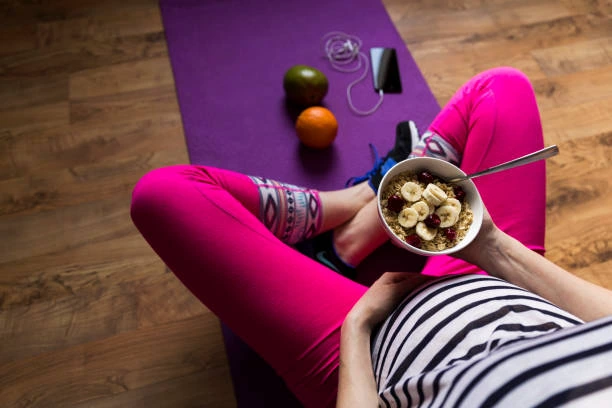According to Healthline – Nutrition and exercise are two interrelated things. However, many people are still confused about which is right: eating before exercise or after? This dilemma is common, but it’s important to take into account everyone’s preferences.
Eating before or after exercise is equally good, depending on each person’s physical condition. However, there are a few considerations about when to eat when you want to exercise that you need to know.
READ MORE: 3 Natural Herbs That Can Flush Out Bad Cholesterol and Excess Sugar From Your Body
Which is better, eating first or exercising first?
In general, there is no rule that requires you to eat before or after your workout. It all depends on your individual circumstances and preferences. Some people may not feel comfortable eating before exercise because they’re worried about feeling cramped and weak when they move. However, some people feel that they should eat before exercise to get the energy they need.
Generally, if the exercise you are doing is not a strenuous one, there is no need to eat before your workout. Even exercising on an empty stomach will help your body burn fat for energy. However, this does not mean that not eating before exercise will make you lose weight.
On the other hand, if the exercise you are about to do is long or more than an hour and the intensity is quite heavy, you are advised to eat before exercising. That way, you’ll get a boost of energy and improve your performance during your workout.
Keep in mind that if the food consumed before exercise is a heavy meal, you should give it a few hours before you finally exercise. The closer you are to eating and exercising, the smaller the portion should be. This is done to prevent bloating during movement.
Rules for eating before and after exercise
Deciding to eat before or after exercise is an individual choice. However, that doesn’t mean you can do whatever you want. There are still some rules that should be considered so that the food consumed does not interfere with the performance or results of the exercise.
1. Consider the time between eating and exercising
If you want to eat before exercise, then choose a high-carbohydrate, high-protein, but low-fat meal at least 3-4 hours before starting exercise. Carbohydrates will provide the glycogen supply that your body needs for exercise such as yoga, gym, or simply jogging.
People who want to exercise in the morning also need to consider the time between when they wake up and when they start exercising. If you are exercising in the morning, there may not be time to digest your food if you consume it before your workout.
2. Recognize the purpose of exercising
Some people exercise as a hobby, while others are on a mission to lose weight. If the latter is your goal, choose foods with complex carbohydrates such as whole grains or oats to meet your nutritional and fiber needs. Also, avoid consuming simple carbohydrates such as bread, cookies, soft drinks, or other packaged foods.
3. Plan the duration of your workout
If you’re only going to exercise for less than 30 minutes at a low or moderate intensity, it doesn’t matter if you don’t eat beforehand. The reason is that the human body can store around 2,000 calories, not to mention those in fat. All this energy allows a person to have energy before exercising even if they haven’t eaten for hours.
Some believe that not eating before exercise will make the benefits of exercise twice as great. According to many studies, there is no relationship between eating before exercise and how many calories are burned if the exercise is done for less than 30 minutes.
4. Set a time interval for eating after exercise
If you decide to eat after your workout, you don’t have to eat the second you finish. Even if you eat 2 hours after your workout, there are still carbohydrate reserves (glycogen) in your muscles that your body uses for energy.








